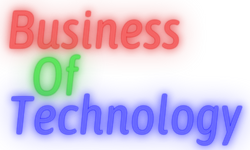ROI (Return on Investment) vs. ROG (Return on Gambling)
For many of us, we think that statement is obvious, something we would never do. Yet, it is something time, and experience has taught me nearly all of us would and have done without realizing it. We may have survived it, but we have done it. We have done it in our personal life, in our careers, and for business owners, we have done it inside our businesses also.
This doesn’t make us bad people, but it can bring bad results. What we need is to recognize what this is so that when these opportunities present themselves we choose wisely. At a minimum, we ought to recognize if we are investing or gambling.
What is an Investment?
An investment is when we have proof that the resources we commit to a goal have predictably shown a pattern of achieving the results of our goal target. This is measurable; if it cannot be measured, it cannot be defined as proof. We are not saying 100% of all decisions need to be measured and proven. We only say those decisions are not defined as ROI vs. ROG.
The proof is also typical results. We have heard that a dead clock has the right time twice daily. Yes, we are speaking of twelve-hour clocks, but we all understand. There is a difference between a market trend and a fad. When a fad goes away, we call that season a bubble. Bubbles may provide an opportunity to invest, if we understand the nature of the opportunity as a bubble and invest appropriately.
What is a Gamble?
Didn’t we basically cover this when we defined what an investment is? Anything that doesn’t qualify as an investment would be a gamble, right? Yes, but looking at what a gamble is has other benefits.
How many people don’t jump onto the tech bandwagon until the market is disrupted and they play catch up? Several large businesses have almost lost their market position because they gambled while not gambling.
Microsoft
Satya Nadella changed the game for Microsoft. He has shown a much better rate of picking opportunities that win. His fame may have started by turning Bing around before being chosen as the next CEO of Microsoft. Microsoft had tried to become a player of any value in the search engine market over and over. They even made offers to Yahoo to absorb their solution. Their first real win was under the leadership of Satya.
Since taking the helm at Microsoft, the company explores, it has won some and lost some initiatives. Before handing the helm over to Satya, Microsoft also explored, and it won some and lost some. The difference was the previous decline. From the Microsoft smartphone to the browser everyone was locked into but didn’t want, Microsoft became known as the company business used because it had to. It was not the company people used because they wanted to. Today from Azure to tools like GitHub, Microsoft is a player people choose when other options are valid.
My point is simple. Satya Nadella is a leader who understands investing and gambling.
Accidental Gambling
In an attempt to not gamble, the old Microsoft strategy achieved gambling. They wanted in on the search engine market. Yet, not knowing how to get there, the strategy was to buy a declining search engine. Gambling or Investing? We hope you know the answer without us saying it.
Why did Apple succeed with the Smart Phone when Microsoft Failed? LOL, yeah. My humor is people didn’t naturally prefer the Windows UI, user interface, at that point in time. They were familiar with it. Familiarity has value, but the market screamed that wasn’t where the win was. Microsoft had statistics that said gambling, or since we all caps is yelling, the statistics were saying GAMBLING!!!! And yet, they did not pivot.
We can jump on too soon or too late. It is true that too soon is gambling. It is also true that too late is gambling. When it comes to business and technology, my experience is business is better at understanding too soon than they understand too late. Perhaps the greatest modern example of this is how slow business was to get off the Microsoft IE browser. The business approach on this topic not only put themselves at risk. The larger consensus and approach potentially put the common vender they all trusted at risk. There were justifications for the risk, but it is my opinion that the business strategy had moved from investment thinking to gambling for the typical late pivots away from IE.
The Winning Mindset
I stated in other articles how when personal computers were a new thing on the market, customers jumped in early because they believed it was the early adopters that won. It isn’t always the early bird who gets the worm. Sometimes the early bird is the one who gets eaten! The moral of the story there is that we need to invest with awareness of aspects of the opportunity that are gambling. Often truths co-exist. It is not one vs. the other, but both are in play.
If we were to give one sustainable mindset to help know what is too early and what is too late, it would be this. People are the reason for the season. The too early season fails because it doesn’t serve people’s needs and wants. The too late season fails because it doesn’t serve people’s needs and wants. Even the IE dilemma mentioned above was a collaboration that ignored the people involved.
How will technology influence your business today?




Recent Comments